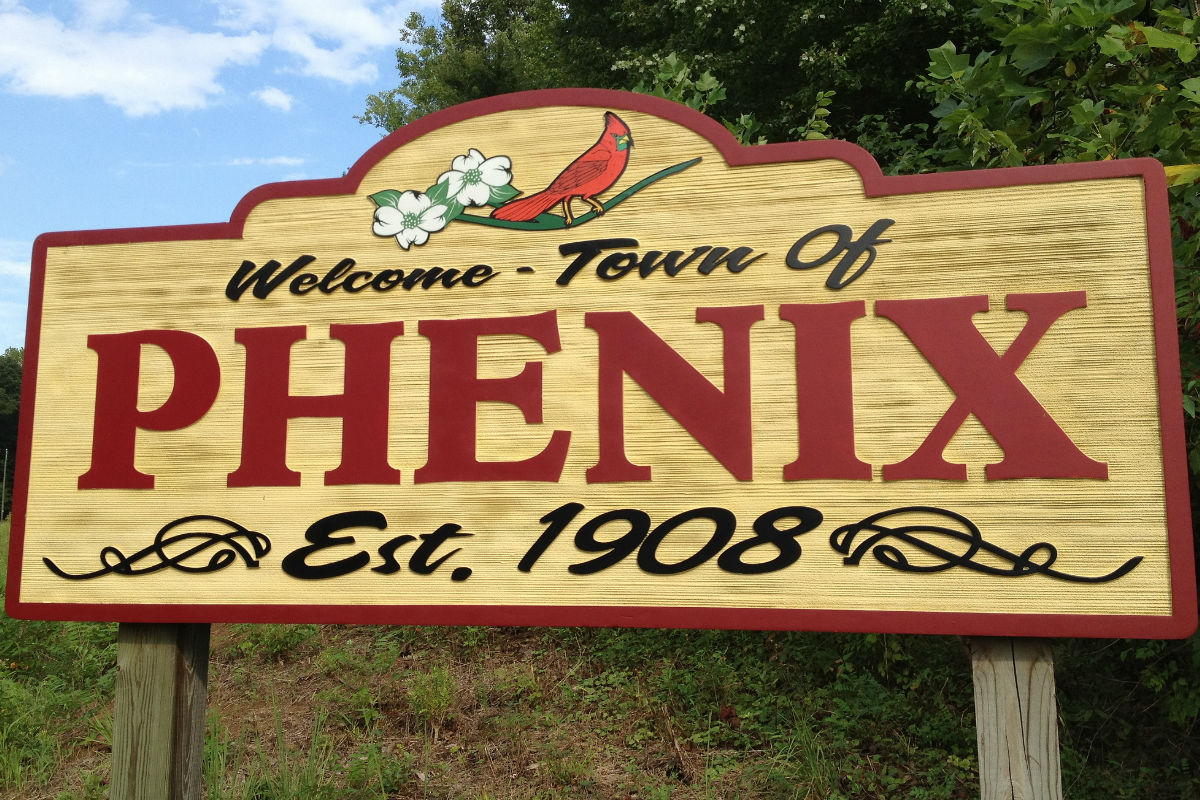If you enjoy In the summer of 2003, one of my close childhood friends and next door neighbor, Jeremiah Hamlett, from Phenix, Virginia, was diagnosed with terminal brain cancer. The night I received word of his diagnosis, I went over to the basketball court across the street from my house and Jeremiah’s and sat in my car with a green notebook pressed against the steering wheel of my car, and began writing. This is the story of our childhood growing up in small town America. This is the story of life and friendship in the face of cancer. This is When the Lights Go Out at 10:16, A Memoir.
Before you read this, read “The Ghosts of Childhood“
There used to be a sign as you entered town that read in a big bold font: Welcome to Phenix, Virginia: A Nice Place to Live. When I was in high school, this sign hung above my headboard in my bedroom until one night, around 3 a.m., it came crashing down on me as I slept.
If you were a Charlotte County cop or state police in the mid-to-late 90s, you may be thinking I stole this sign.1 While me stealing the sign may fit the image of the green haired, hard-nosed criminal for which I was portrayed — I’m not saying my appearance helped matters — I’m sorry to tell you, I didn’t steal this sign or anything else I was accused of stealing or destroying during this time. I saw the “Welcome to Phenix” sign uprooted from the ground, displaced to make way for the new sign, laying on its side behind the municipal building in front of my house, and my dad asked the mayor at the time if I could have it, and he obliged.
Here’s the thing. Even though when I grew up I left Phenix behind, Phenix, to pause for a sentimental moment, has always held a special place in my heart — more than simple nostalgia provides. It’s hard to describe really.
James Joyce, Irish novelist and author of Ulysses, considered the greatest novel in the English language by Modern Library, said it best when he said of his hometown, “When I die, Dublin will be written in my heart.”
And so, for me, as it was Joyce, “When I die, Phenix will be written in my heart.” It’s who I am, as much as the hair on my head or the blue in my eyes.
Does that make sense? How about instead I pluck a scene from a somewhat more modern equivalent as an example? There’s a moment in the film Orange County, starring Colin Hanks and Jack Black, when the lead character, an aspiring writer named Shaun Brumder (played by Colin Hanks), finally gets his wish: escape from Orange County by way of acceptance into Stanford University.
But here’s the thing: Shaun makes the decision to do the exact opposite of what he has hoped to achieve the entire narrative up to this point. He decides to stay in Orange County. Standing before his dysfunctional family at the resolution of the film, Shaun says:
I was just up in my room thinking about Faulkner, and wondering, if he’d left the south, would he have ever written Light in August? Or what if James Joyce had left Ireland? I mean, he did leave Ireland, but not in his heart. See what I’m getting at?
In a scene just moments before, Shaun tracks down his hero, the writer Marcus Skinner. It is Skinner who inspired Shaun to become a writer in the first place. After the sudden death of one of his close friends, Shaun sits on the beaches of Orange County considering what it all means (life, death, and the great beyond). There, he finds Skinner’s book poking out of the sand next to him, and begins reading it.
Flash forward to when Shaun, who had hoped to study under the famed writer while at Stanford, finally meets Skinner in person.
The following dialogue ensues:
Shaun: I want to be a good writer, Mr. Skinner, but I’m just afraid that if I don’t get out of Orange County, it’s never going to happen.
Marcus Skinner: Don’t be afraid of that. You are a good writer. And every good writer has a conflicted relationship with the place where he grew up. Joyce, Faulkner, Tolstoy. And that’s what I remember loving about your story. It’s very conflicted. At the beginning, you think these people are doomed [. . .] headed for disaster. Then, as you read on, you see that there exists, beneath the surface, these very real connections, these deep relationships . . . that there’s still hope. Was that the message you were trying for?
Like the real life Joyce or the fictional Shaun Brumder, my hometown is ingrained in me, whether I am physically there or physically elsewhere, as are the deep relationships from my time in this place. Just as the curls in my hair may not show until they’ve grown a certain length, Phenix sits in the roots of who I am no matter the zip code.
After you read this, read “Then and Now: A Brief History of Phenix, Virginia“
Did you enjoy what you just read?
Help others find it on the web so they can enjoy it too. Copy the link from your browser and paste it into a text message, email, or share on social media with friends and family.
Photo: Alan Levine. “Phenix, Virginia” Licensed under CC BY 2.0
